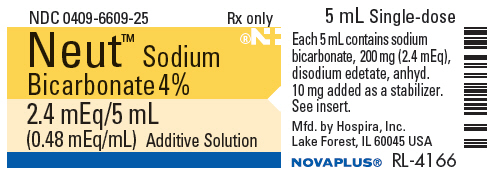
Neut | Sodium Bicarbonate Injection while Breastfeeding
What is Neut | Sodium Bicarbonate Injection used for?
Neut | Sodium Bicarbonate Injection while breastfeeding safe or not? Can there be any side effects for infant while using it during breastfeeding?

Neut | Sodium Bicarbonate Injection Breastfeeding Analsys
Sodium bicarbonate while Breastfeeding
SafeCAS Number: 144-55-8
It is contained in preparations used for treatment of excessive gastric acidity, oral rehydration solutions and fluids for intravenous use that aim the correction of acute metabolic acidosis. Also used for long-standing treatment of chronic metabolic acidosis due to kidney malfunction. Oral bicarbonate solutions neutralize gastric acidity with production of Carbon Dioxide. The rest is absorbed by the gut. In the plasma, bicarbonate is kept at normal physiological range, with the excess eliminated by the kidney. Epithelial cells of the mammary gland regulate the entrance of sodium and bicarbonate into the mother's milk, with little effect on milk composition due to diet. Bicarbonate decreases secretion of Prolactin in cases of secondary Hyperprolactinemia due to metabolic acidosis, but does not affect production of the milk. WHO Model List of Essential Medicines (2002): compatible with breastfeeding

What should I do if I am breastfeeding mother and I am already exposed to Neut | Sodium Bicarbonate Injection?
As usage of Neut | Sodium Bicarbonate Injection is mostly safe while breastfeeding hence there should not be any concern. In case of any change in behavior or health of your baby you should inform your health care provider about usage of Neut | Sodium Bicarbonate Injection else no further action is required.
I am nursing mother and my doctor has suggested me to use Neut | Sodium Bicarbonate Injection, is it safe?
Usage of Neut | Sodium Bicarbonate Injection is safe for nursing mothers and baby, No worries.
If I am using Neut | Sodium Bicarbonate Injection, will my baby need extra monitoring?
No
Who can I talk to if I have questions about usage of Neut | Sodium Bicarbonate Injection in breastfeeding?
US
National Womens Health and Breastfeeding Helpline: 800-994-9662 (TDD 888-220-5446) 9 a.m. and 6 p.m. ET, Monday through Friday
UK
National Breastfeeding Helpline: 0300-100-0212 9.30am to 9.30pm, daily
Association of Breastfeeding Mothers: 0300-330-5453
La Leche League: 0345-120-2918
The Breastfeeding Network supporter line in Bengali and Sylheti: 0300-456-2421
National Childbirth Trust (NCT): 0300-330-0700
Australia
National Breastfeeding Helpline: 1800-686-268 24 hours a day, 7 days a week
Canada
Telehealth Ontario for breastfeeding: 1-866-797-0000 24 hours a day, 7 days a week
